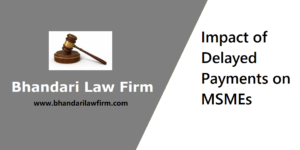Jurisdiction and Hierarchy of Criminal Courts In India
Jurisdiction & Hierarchy of Criminal Courts In India: Chapter 2 of the Code of Criminal Procedure,1973 (CrPC) defines the jurisdictions of courts and offices. This chapter is spread under 20 sections (Section 6-Section 25). Majorly the courts, their jurisdiction, their officeholders, and their responsibilities are discussed throughout this chapter. We shall discuss each one below.
Classes of Criminal Courts
Section-6 defines the classes of criminal courts. Under Code of Criminal Procedure, 1973, in a state, there have to be four types of court for criminal matters (except the High Courts and Courts established by any other statute). They are-
-
Courts of Session
-
Judicial Magistrates of the first class or a Metropolitan Magistrate (in metropolitan area)
-
Judicial Magistrate of Second class
-
Executive Magistrates Jurisdiction & Hierarchy of Criminal Courts In India
Territorial Division of Courts
Section-7designates the courts present in a territorial region. Under this, every state of India shall consist of session divisions. Each session divisions will be for one district (for CrPC) or consist of multiple districts.
In metropolitan cities, there may be the division of session courts and districts. To further bifurcate the number of districts, the government can consult the High Court and do so.
The districts can also be further divided into sub-divisions by the government after the consultation of the High Court. Jurisdiction & Hierarchy of Criminal Courts In India
The formation of districts, session courts, and subdivisions in a state is rendered to be formed under section-7 of the CrPC.
Metropolitan Areas under CrPC Jurisdiction & Hierarchy of Criminal Courts In India
We may always wonder what is a metropolitan and who decides which city becomes a metropolitan. This is an important term according to the jurisdictional aspect of law. Under section-8 of this code, the term metropolitan is defined. Jurisdiction & Hierarchy of Criminal Courts In India
It states that an area of a town or a city can be declared (by notification) as metropolitan when it exceeds the population of One Million. This population number is decided by the published census. At the commencement of this code, metropolitan cities were Bombay, Calcutta, Madras, and Ahmedabad. If the state government wishes to alter, extend or reduce the areas of these metropolitan cities, they can do so after publishing notification. This does not mean that the population can be reduced. This only talks about the area.
So, what if the population of a metropolitan decrease from One Million?
The state government can, by a notification, cease the title of a metropolitan from a city if the population goes below One million. But, for the purpose of this code, if there are any cases pending before the dated notification of ceasure, the metropolitan structure of court shall take place. Similarly, if the state government alters, reduces or expand the areas of a metropolitan city, the ongoing or pending cases are unaffected and the proceedings shall take place like normal. Jurisdiction & Hierarchy of Criminal Courts In India
Session Courts Jurisdiction & Hierarchy of Criminal Courts In India
Section 9 defines the Sessions court of a session’s division. It also gives a brief explanation of the judges presiding over the court.
According to this code, there will be a sessions court for every sessions division or district. Each of these session courts shall be presided by a judge as a ‘sessions judge’. Additional and Assistant Session Judges may also be appointed by the High Court. The High court can also make a Sessions Judge of one district as the Additional Session Judge of some other district.
What will happen if the position of the Sessions Judge is vacant?
If there is a vacancy of a sessions judge for a matter, then an Additional or Assistant session judge can preside over a matter. If those posts are vacant as well, then the Chief Judicial Magistrate shall have the jurisdiction over the matter. Jurisdiction & Hierarchy of Criminal Courts In India
The session court jurisdiction is normally decided by the High Court (by notification). But if the party wishes to hold the proceedings at the jurisdiction of some other court, then the party is allowed to do so with the consent of all the other parties.
Sub-ordinates of Assistant Sessions Judge
Section-10 defines to us the role allotted to the Assistant Sessions Judge.
It states that all the assistant session judges are the sub-ordinates of the session judge of their particular jurisdiction. The preceding Session Judge has the power to make rules which apply to the Assistant Sessions Judges as well. If the additional or assistant judge is absent and there is an urgent application or disposal of a case, then he Chief Judicial Magistrate shall take over the case and have jurisdiction over it.
Courts of Judicial Magistrate Jurisdiction & Hierarchy of Criminal Courts In India
Section-11 of the CrPC gives jurisdiction to the courts of Judicial Magistrates.
It defines that in every district, there shall be courts of Judicial Magistrate. These Judicial Magistrates will be of first-class and second class. They will preside in a local area of the district and they will have jurisdiction over it. No other courts in the local areas of the magistrate shall have the jurisdiction of it. These officers shall be appointed by the High Court. If the High Court at any point of time feels so, then it can invest the powers of Judicial Magistrate of the first and second class to a member of a judicial service of a state who functions as a judge for civil court.
Chief Judicial Magistrate and Additional Chief Judicial Magistrate
Under section-12 of the CrPC, the definition and appointment of Chief Judicial Magistrate (CJM) and Additional Chief Judicial Magistrate (ACJM) is mentioned (except for the metropolitan cities).
It states that the High Court shall appoint a Judicial Magistrate of First class to become a Chief Judicial Magistrate. A post with the same powers if CJM is made by the High Court, called ACJM. The ACJM is also appointed from the Judicial Magistrates of First class.
The High Court may also appoint a Juridical Magistrate of First class to be a sub-divisional Judicial Magistrate. This sub-divisional magistrate has a power of supervision over the rest of the Judicial Magistrates except the Additional Chief Judicial Magistrate. Jurisdiction & Hierarchy of Criminal Courts In India
Special Judicial Magistrate Jurisdiction & Hierarchy of Criminal Courts In India
Section-12 gives us the provision of appointment of Special Judicial Magistrates. All the Special Judicial Magistrates pan India are made through section-13.
In this section, the High Court can appoint a Special Judicial Magistrate on the request of the state or the central government. The Special Judicial Magistrate can be any government employee who has a background in legal affairs. He can have any or all the powers of a Judicial Magistrate. Also, he cannot be appointed for a term exceeding one year. If the High Court wished to appoint a special Judicial Magistrate in a metropolitan area outside metropolitan Magistrates jurisdiction, the court can.
Local Jurisdiction of Judicial Magistrates
Under Section-14, the CJM can define the local limits of areas of the working of magistrates. They can be any Judicial Magistrates of first or second class and also, Special Judicial Magistrate until, their local areas are previously established. Otherwise, the jurisdiction of such magistrates spread throughout the district.
Subordination of Judicial Magistrates
Section-15 mentions the sub-ordinates of judicial Magistrate. So, a CJM is a sub-ordinate od a sessions judge. Every other Judicial Officer of that district shall be a subordinate to the CJM.
The CJM can give directions and orders to the Judicial Officers to share the business under this act.
Courts of Metropolitan Magistrate
Section-16 deals with the courts established under Metropolitan Magistrates.
It says that in a metropolitan city, there will be established as many courts of metropolitan magistrates as consulted by the High Courts. The officers or Magistrates of these courts shall be appointed directly by the High Court. The powers of a Metropolitan Magistrate are spread throughout the metropolitan area.
Chief and Additional Metropolitan Magistrate
Section-17 gives us the details of how the appointment of Chief Metropolitan Magistrate and Additional Metropolitan Magistrates are made. Jurisdiction & Hierarchy of Criminal Courts In India
The High Court appoints a Chief Metropolitan Magistrate (CMM) in for every metropolitan area from the group of Metropolitan Magistrates.
Further, the high court may appoint Additional Metropolitan Magistrate (AMM) from the Metropolitan Magistrates. These AAMs have the same level of authority as the CMM under this code.
Special Metropolitan Megistrate
Section-18 gives us the provision of the Special Metropolitan Magistrate. It is similar to the special Judicial Magistrate in a lot of ways. The only difference is that the Special Metropolitan Magistrate deals with the Metropolitan area. Jurisdiction & Hierarchy of Criminal Courts In India
Under this section, the High Court can establish a special Metropolitan Court, If requested by the state or central government. the special Metropolitan magistrate shall be a person who was the employee or is the employee of the government and has experience with legal affairs. The Special Metropolitan magistrate cannot be appointed for more than one year.
Subrogation of Metropolitan Magistrate
Just like the subrogation of the Judicial magistrate, section 19 defines the subrogation of the Metropolitan magistrate.
According to the section, the chief Metropolitan magistrate is the subordinate of the sessions judge. similarly, the additional chief Metropolitan magistrate is also (for the purpose of the code) the subordinate of the sessions judge. The other Metropolitan magistrates are the subordinates of the Chief Metropolitan Magistrate. The Chief Metropolitan Magistrate can make rules and regulations for the Metropolitan magistrates for the division of business along with the additional Metropolitan magistrate.
Executive Magistrates
Section 20 introduces us to a new term of Executive Magistrate. This section hence talks about that in every district and every metropolitan city, the state government may appoint an Executive Magistrate(s). From these executive magistrates, a district Magistrate is selected.
The state government here can then appoint an Additional District Magistrate. Such a magistrate shall have all the powers of a District Magistrate.
An executive magistrate can be made a sub-divisional magistrate by the state government. He is in charge of the sub-division. The commissioner of the police may confer powers from the executive magistrate if ordered by the state.
Special Executive Magistrates
The Special Executive Magistrates are defined under section-21: here, the state government appoints a special executive Magistrate from the set of executive magistrates as the court may deem fit. They are appointed to carry out the special functions of the executive magistrates.
Local Jurisdiction of Executive Magistrates
Section 22 defines the jurisdiction of the executive Magistrate. The District Magistrate has the power invested by the State to define the limits and jurisdiction of the executive Magistrate. This jurisdiction of magistrate extends throughout the district.
Subrogation of Executive Magistrates
The sub-ordination of the Executive Magistrates is defined in this section. It says that all the executive Magistrates (except Additional Executive Magistrate) are the subordinates of the District Magistrate. Also, all the executive Magistrates are sub-ordinates to the sub-divisional Magistrate.
The District Magistrate has the power to make rules and grant powers to the Executive Magistrate under this code. This can be done to share the work or for the distribution of business.
Role of Public Prosecutor
-
Public Prosecutors
Section-24 is one of the most important terms defined under Chapter 2. It defines to us the term ‘Public Prosecutors’, their roles, their appointments, and jurisdictions (if any).
As we know, that criminal cases are fought by the government, therefore, to represent the state or the central government, a public prosecutor is appointed by the state after the consultation of the High Court. Additional Public prosecutors can also be appointed if needed.
There can be more than one Public Prosecutors and there can also be more than one Additional Public Prosecutor for a case or a class action case or for a local area case.
(Also Read Here To Know Stages of Criminal Trials Under Cr.PC)
The state government is also required to appoint one or more public prosecutors and one or more Additional Public Prosecutors for one district.
The state can appoint the same public and additional public prosecutors for two districts too if allowed.
In the process to appoint the Public Prosecutor, the District Magistrate in consultation with the sessions judge prepares a list of lawyers to fit for the position of Public Prosecutor or Additional Public Prosecutor. Then the state selects the fit candidate from the list provided by the District Magistrate.
The minimum experience of advocacy maintained to be selected for the role should not be less than seven years. If the government wants someone for the role of a Special Public Prosecutor, then the experience bar should not be less than ten years.
-
Assistant Public Prosecutors
Section-25 defines Assistant Public Prosecutors.
In the courts of Magistrates, the central government may appoint one or more Assistant Public Prosecutors to conduct any case or class of cases. If an Assistant Public Prosecutor is not available, then the District Magistrate may appoint any other person as the assistant Public Prosecutor who is in charge of the case. Noted: that he should not be a police officer if he/she has ever taken part in an investigation against the accused being prosecuted. Also, he should not be below the rank of Inspector.
Author: This article was written by Tishya Singh, Law Student of Symbiosis Law School, Noida, Uttar Pradesh.
Note: For any further information or any query you may contact us on 9855677966 or via email info@bhandarilawfirm.com



